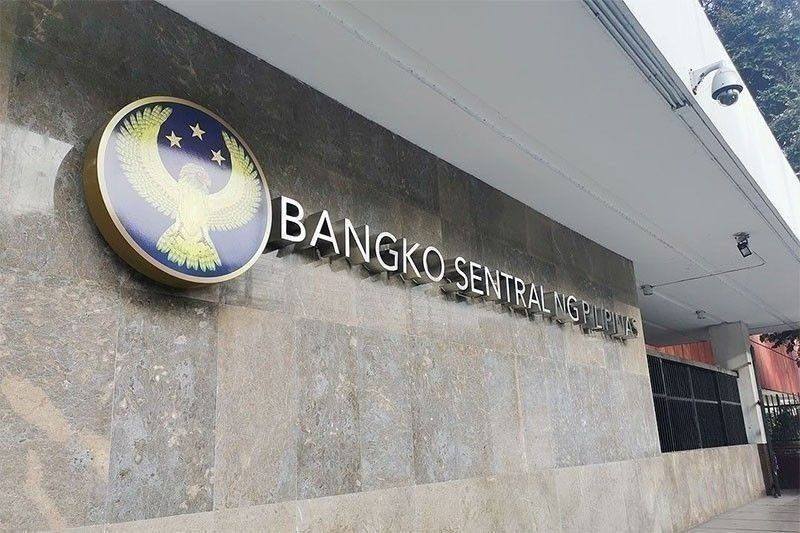BSP brings down key rate to 5.5%

MANILA, Philippines — The Bangko Sentral ng Pilipinas (BSP) resumed its monetary policy easing yesterday, cutting the benchmark interest rate by 25 basis points to 5.50 percent amid cooling inflation and risks to slower economic momentum.
The latest move brings the total rate cuts to 100 basis points so far this cycle, as the BSP gradually unwinds the aggressive tightening it implemented from 2022 to 2023.
Rates on the overnight deposit and lending facilities were also lowered to five percent and six percent, respectively.
BSP Governor Eli Remolona Jr. said the more challenging external environment would dampen global gross domestic product (GDP) growth, posing a downside risk to domestic economic activity.
“On balance, the more manageable inflation outlook and the risks to growth allow for a shift toward a more accommodative monetary policy stance,” Remolona said.
Headline inflation eased to 1.8 percent in March, below the BSP’s two to four percent target. This brought the average inflation to 2.2 percent in the first quarter of the year.
The BSP trimmed its risk-adjusted inflation forecast to 2.3 percent from 3.5 percent for this year. It also reduced its estimate to 3.3 percent for 2026 from 3.7 percent previously. The outlook for 2027 stands at 3.2 percent.
BSP Assistant Governor Zeno Ronald Abenoja said the risks to the inflation outlook have eased and continue to be broadly balanced from 2025 to 2027.
Upside risks could come from transport fare hikes, meat prices and utility rate adjustments, while downside pressures may stem from lower rice tariffs and softening global demand.
Remolona said the Philippines is not likely to be significantly affected by the tariff-related inflationary pressures that are worrying other major economies as it has less trade exposure to the United States compared to the rest of the world.
He said that the reciprocal tariffs announced so far would be disruptive to the Philippines, but not as disruptive as it would be for larger, more exposed economies.
Asked about the outlook for further easing, the BSP chief confirmed that more cuts are likely this year.
“Yes, we are contemplating further cuts this year,” he said. “We can’t tell exactly how many more cuts, but definitely we’re not done yet. We will still do baby steps – 25 basis points at a time – but we can’t say how many more times.”
Remolona also said that the BSP does not expect to complete the easing cycle within 2025.
“There’s a possible risk of a hard landing. If that happens, we may have to cut by more than 25 basis points at a time,” he said.
Remolona said the current stance of monetary policy remains slightly restrictive.
“What we’re trying to do is stay as close as possible to the economy’s capacity. Once we go beyond that, it becomes inflationary. Right now, we’re still somewhat below capacity, which means we have room to cut without triggering inflation,” he said.
Abenoja said the effects of previous policy hikes continue to weigh on domestic demand, but the 100-basis-point reduction so far has helped maintain growth momentum.
“There’s still room to make monetary policy less restrictive moving forward, and that should help support economic growth. We’re also working to close the negative output gap that opened up during the tightening cycle,” Abenoja said.
Remolona said further cuts would not necessarily happen at every meeting.
Economists had widely expected the BSP to resume its rate-cutting cycle after a surprise pause in February, when the Monetary Board held the benchmark rate steady at 5.75 percent to assess the impact of earlier adjustments.
Pantheon Macroeconomics chief emerging Asia economist Miguel Chanco said headline inflation might not re-accelerate substantially from the March print and could bring average inflation to 2.5 percent this year.
- Latest
- Trending























